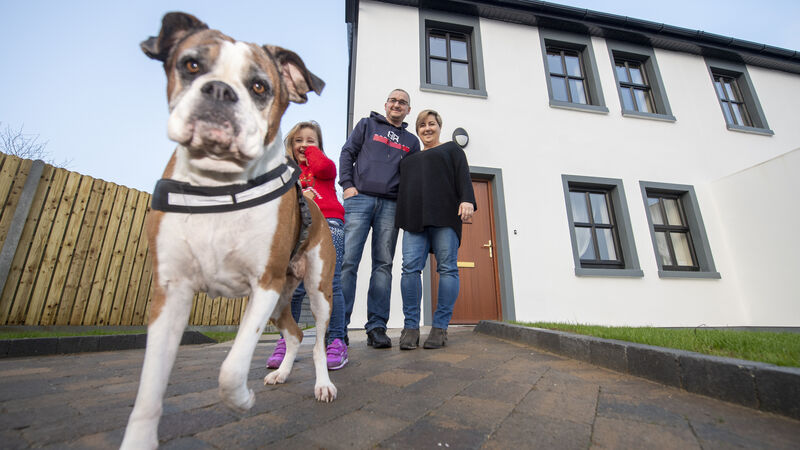Michael Clifford: Referendum isn't needed to put a roof over everybody's head

Marcin, Anna and daughter Ameua Wojs family from Castleisland, Co Kerry outside their new home, which was built by Marcin’s employer, Walsh Print. Photo: Domnick Walsh
We saw some fresh thinking in the area of housing during the week.
In Castleisland, Co. Kerry, a Polish family, Marcin and Anna Wojs, moved into their new home with their daughter. The house was built by Marcin’s employer, Walsh Print, which employs 120 people locally.












